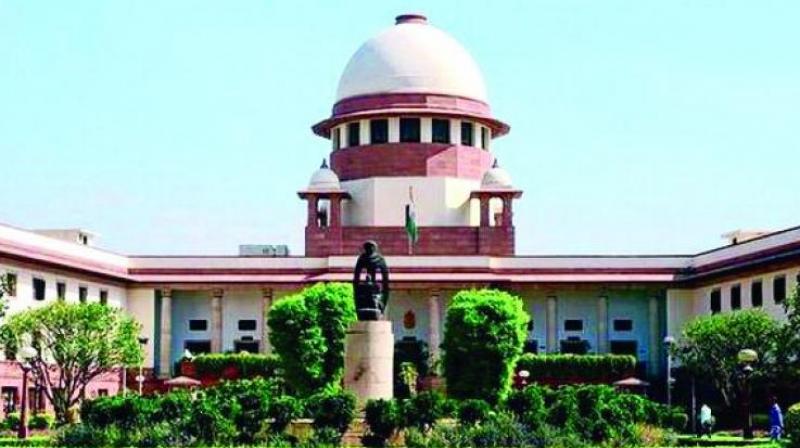Husband not master of woman: SC strikes down 158-yr-old Adultery law
'Any system treating women with indignity or discrimination invites wrath of the Constitution,' said SC.

New Delhi: Decriminalising the 158-year-old adultery law, a Constitution Bench of the Supreme Court on Thursday unanimously struck down Section 497 of Indian Penal Code (IPC), which penalises adultery.
The apex court added that “without a shadow of doubt”, it can still be grounds for divorce.
Chief Justice Dipak Misra called the Victorian adultery law “arbitrary”, adding that it is time to say that husband is not the master of woman.
Three judges out of five-judge Constitution bench held that making adultery a crime is retrograde and would mean "punishing unhappy people". Most countries have abolished law against adultery, the court added.
"Any system which affects individual dignity, equity of women in a civilised society invites wrath of the Constitution," CJI Misra said.
"Any provision treating woman with inequality is not constitutional," Justice Misra added.
CJI Misra said, the beauty of the Constitution is that it includes "the I, me and you". He said, "Equality is governing parameter of the Constitution”.
Section 497 of the Indian Penal Code says: "Whoever has sexual intercourse with a person who is and whom he knows or has reason to believe to be the wife of another man, without the consent or connivance of that man, such sexual intercourse not amounting to the offence of rape, is guilty of the offence of adultery."
A five-judge constitution bench headed by CJI Justice Dipak Misra on August 8 had reserved its verdict after Additional Solicitor General Pinky Anand, appearing for the Centre, concluded her arguments.
The hearing in the case by the bench, which also comprised justices RF Nariman, AM Khanwilkar, DY Chandrachud and Indu Malhotra, went on for six days and had commenced on August 1.
The Centre had favoured retention of penal law on adultery, saying that it is a public wrong which causes mental and physical injury to the spouse, children and the family.
"It is an action willingly and knowingly done with the knowledge that it would hurt the spouse, the children and the family. Such intentional action which impinges on the sanctity of marriage and sexual fidelity encompassed in marriage, which forms the backbone of the Indian society, has been classified and defined by the Indian State as a criminal offence in exercise of its Constitution powers," it said.
The top court had questioned the government how the law preserved the "sanctity" when the extramarital affair becomes non-punishable if the woman's husband stands by her.
"Dichotomy is manifest (in Section 497)" as "husband can only have control over his emotion and cannot ask wife to do this or that", the constitution bench had told the government.
On January 5, the apex court had referred to a five-judge Constitution bench the plea challenging the validity of the penal law on adultery. The court had taken a prima facie view that though the criminal law proceeded on "gender neutrality", the concept was absent in Section 497.
Earlier, the Supreme Court upheld the law against adultery thrice. Last year, the apex court said the laws on adultery treat a woman as her husband's subordinate and time has come for society to realise that a woman is as equal to a man in every respect.

